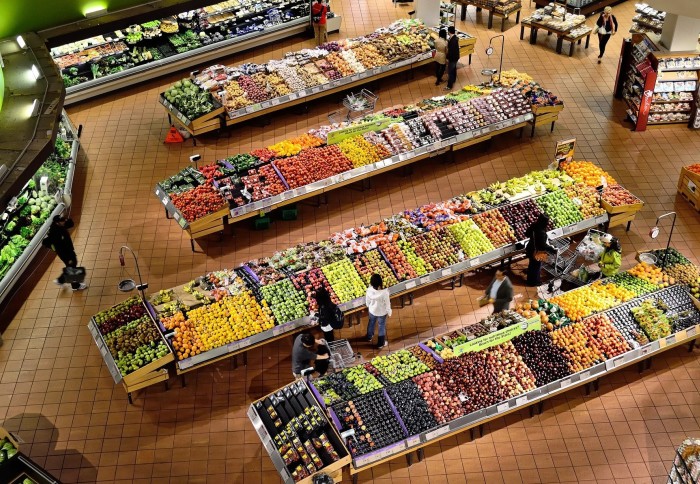Austerity policies linked to increased foodbank use and food insecurity
by Jack Stewart

Evidence suggests a link between UK austerity policies and increased foodbank use and lower ability to afford food.
Austerity policies, particularly changes to the benefit system including benefit caps, delays, and reductions introduced since 2010, may be associated with food insecurity and foodbank use.
These are findings of a systematic review of the relationship between austerity policies and food insecurity and foodbank use by researchers from Imperial College London and the University of Liverpool, funded by the National Institute for Health Research (NIHR) School for Public Health Research (SPHR).
The study, published in eclinicalmedicine, searched and reviewed all the scientific research on the impact of austerity policies on food insecurity and foodbank use. Eight studies were found which fit the criteria and assessed austerity policies (including welfare reform) and food insecurity (including foodbank use) in the UK. All eight papers on this topic suggested a relationship between austerity policies and food insecurity, which is limited access to food due to lack of money or other resources.
Six studies found that the welfare reform aspect of UK austerity policies led to increased food insecurity and food bank use. In particular, sanctions – delays to benefits as a response to a claimant not actively seeking work – may increase food bank use. Studies found that increases of 100 sanctions per 100,000 people led to increases of between 2 and 36 food parcels per 100,000 people. Cuts in welfare spending, Personal Independence Payment (disability benefit) reassessments, the removal of the spare room subsidy (known as the “bedroom tax”) and Universal Credit were also associated with foodbank use. Two studies found that a country introducing austerity policies were associated with increased food insecurity in European countries including the UK.
Rosemary H. Jenkins, from the School of Public Health and first author on the paper, said: “This is the first time that all the studies that aim to assess the impact of austerity on food insecurity and foodbank use have been systematically reviewed. Our paper adds important findings to existing evidence that austerity policies, particularly changes relating to benefits, have affected people’s ability to afford food and increased food bank use.”
Food insecurity includes worrying about being able to get food, changing how good and varied food is, reducing amount of food, skipping meals, and experiencing hunger. Food insecurity can have considerable impacts on long-term health and wellbeing. Previous studies have linked food insecurity to poor physical health, higher body weight and obesity, and chronic disease.
“In the Budget set out by the chancellor on the 3rd March, the Universal Credit uplift was upheld for the next six months, but other aspects of the welfare system were left unaddressed,” says Rosemary H. Jenkins. “Our research suggests that the changes to the benefits system in the last ten years have affected people’s ability to afford food and may have long term health impacts. We would urge the government to consider how to strengthen the safety net and remove features which cause benefit reductions and delays, as these can seriously affect people’s abilities to afford food.”
Article text (excluding photos or graphics) © Imperial College London.
Photos and graphics subject to third party copyright used with permission or © Imperial College London.
Reporter
Jack Stewart
School of Public Health